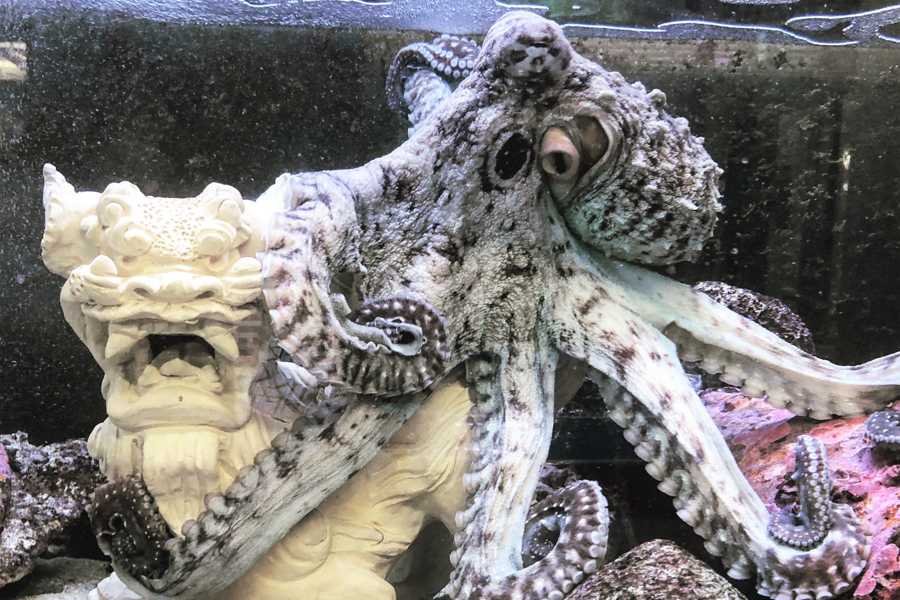Measuring octopus cognition
With eight arms, large eyes, and shape-shifting skin, octopus’ bodies appear almost otherworldly. Their cognitive abilities fascinate us because they are comparable to those of vertebrates, yet our evolutionary lines diverged about 550 million years ago. The combination of their intelligence and uniqueness prompted neuroscientists to study the brains of octopods as early as 150 years ago. An international team including the University of Göttingen has now, for the first time, succeeded in measuring brain activity in octopuses moving freely through the water. While such studies are well established in mammals and birds, until now this has not been possible in octopuses. The study was published in the scientific journal Current Biology.

With eight arms, large eyes, and shape-shifting skin, octopus’ bodies appear almost otherworldly. Their cognitive abilities fascinate us because they are comparable to those of vertebrates, yet our evolutionary lines diverged about 550 million years ago. Photo: Tamar Gutnick, Michael Kuba
Bernstein members involved: Andreas Neef
“If we want to understand how the brain works, octopuses are the perfect animal to study as a comparison to mammals. They have a large brain, an amazingly unique body, and advanced cognitive abilities that have developed completely differently from those of vertebrates,” says Dr Tamar Gutnick, visiting researcher at the University of Naples. To study these brain waves, the researchers used miniaturised data loggers originally developed for birds. These were implanted so that the octopuses could swim freely through their aquarium. “This technique means we now have the ability to peer into their brain while they are doing specific tasks. This is a crucial step for understanding how octopus brains work,” explains Professor Michael Kuba, who also carries out research in Naples.
The electrical recordings were made in regions of the brain that are likely to be responsible for learning and memory. Their layered structure is reminiscent of the hippocampus, which organizes these tasks in the mammalian brain and employs various activity patterns for this purpose. One such pattern is a slow spike with superimposed high-frequency bursts, known as ‘sharp wave with ripples’. “Interestingly, in the octopus, we observed spikes that resemble these ‘sharp waves’, but without the ripples,” explains Dr Andreas Neef from the Göttingen Campus Institute for Dynamics of Biological Networks, who analysed the measurements.
Whether the similarity of the wave patterns indicates a comparable role for memory formation is not known. Equally unclear is the function of slow, strong oscillations lasting many seconds in the octopus brain, which do not resemble any known pattern. Investigating these unique differences will be part of future studies. In addition to the researchers from Göttingen and Naples, scientists from the Okinawa Institute for Science and Technology, as well as the Universities of Zurich and Kyiv, were involved in the study.




